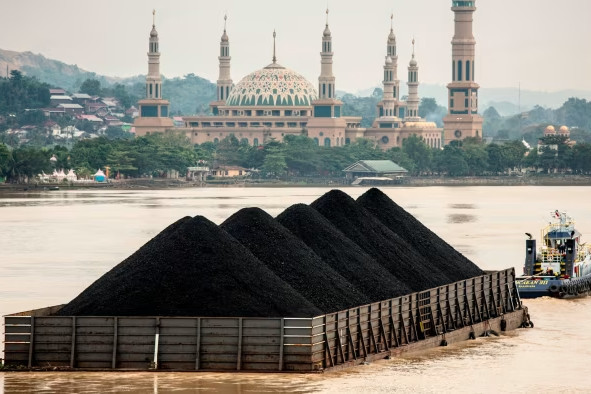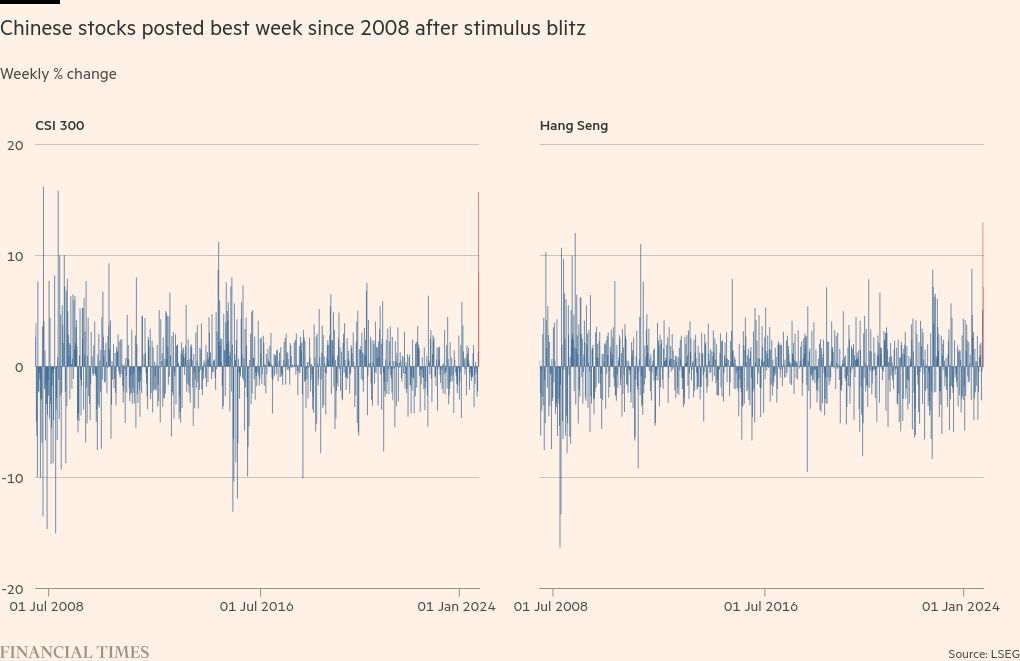
This article is an on-site version of our FirstFT newsletter. Subscribers can sign up to our Asia, Europe/Africa or Americas edition to receive the newsletter every weekday. Explore all of our newsletters here
Good morning. In today’s news:
-
Indian solar companies see opportunity in the US
-
Indonesia’s coal producers face growing scrutiny
-
The swing states that will decide the US election
But first: Chinese authorities are demanding that a growing number of schoolteachers and other public sector employees hand in their passports as President Xi Jinping tightens his grip on society.
The passport collection drive allows local government officials to control and monitor who can travel abroad, how often and to where.
Interviews with more than a dozen Chinese public sector workers and notices from education bureaus in half a dozen cities show restrictions on international travel have been greatly expanded from last year to include rank-and-file employees of schools, universities, local governments and state-owned groups.
“All teachers and public sector employees were told to hand in our passports,” said a primary school teacher in a major city in the western province of Sichuan.
In central Hunan province, a mid-level official at a local government investment fund said he gained approval from nine different departments for a holiday abroad but still could not retrieve his passport.
“No one would tell me what exactly was needed to get my passport back,” he said. Read more about the widening restrictions on foreign trips.
Here’s what else I’m keeping tabs on today:
-
Economic data: Thailand publishes September inflation data. China, Hong Kong and Singapore report foreign exchange reserves.
-
Diplomacy: South Korean President Yoon Suk Yeol meets Philippines President Ferdinand Marcos Jr for bilateral talks in Manila.
-
Middle East: Today is the first anniversary of Hamas’s attack on Israel.
Five more top stories
1. Indian companies are moving to fill the gap left by the exclusion of Chinese exports from the fast-growing US solar industry. Sumant Sinha, chief executive of ReNew, among India’s largest renewables companies, told the FT that there “will be demand” for solar components from India as Washington steps up its crackdown on manufacturers with ties to Beijing.
2. European households are saving at higher rates than the pre-pandemic era, according to data that highlights a clear divergence from more buoyant US consumers driving America’s economic recovery. “The European consumer is just very, very cautious, and the US consumer is much more comfortable to spend, spend, spend,” said Nathan Sheets, chief economist at US bank Citi. Read the full story.
3. Ireland has rejected Israeli calls for its UN peacekeeping troops to withdraw from Lebanon, insisting it will not evacuate them even as Israel intensified its air campaign against the militant group Hizbollah. Irish President Michael D Higgins slammed what he called “outrageous” threats against the peacekeepers from the Israel Defense Forces that “sought to have them evacuate the villages that they are defending”.
4. One of Saudi Arabia’s richest tycoons Prince Alwaleed bin Talal has launched a comeback attempt, reviving a project to build the world’s tallest tower. The Jeddah Tower is set to surpass the 828-metre Burj Khalifa in neighbouring Dubai as the world’s tallest building when completed in 2028. It is the most high-profile deal involving Prince Alwaleed since he was detained in Riyadh’s Ritz-Carlton in an anti-corruption drive in 2017.
5. The co-founder of Regeneron has warned that blockbuster weight-loss drugs could cause “more harm than good” unless the rapid muscle loss associated with the treatments is solved. Regeneron is among a growing list of drugmakers researching experimental medicines to preserve lean muscle mass in combination with weight-loss drugs.
News in-depth

From mine sales to expansion into nickel and aluminium smelting, coal producers in Indonesia are reducing their exposure to the commodity as finding financing for the “dirtiest” fossil fuel becomes increasingly difficult. The corporate efforts to diversify underscore the scrutiny businesses are now facing amid the energy transition and concerns over long-term demand for coal.
We’re also reading . . .
-
US swing states: From a “blue wall” to the American desert, these are the places where the 2024 presidential race will be decided.
-
FT Magazine: Here’s the unlikely story of the greatest prison break in British history — and why it took 25 years to solve.
-
The case for office pettiness: There is a reason white-collar workers obsess about the most apparently trivial things, writes Pilita Clark.
Chart of the day
The scorching rally in Chinese stocks over the past week or so underlines one of the key rules of markets, writes columnist Katie Martin: always keep an eye on the crowd.

Take a break from the news
Affluent Indians are getting serious about wine. That should give the world’s wine producers, concerned about shrinking sales elsewhere, some reason to be hopeful, writes Jancis Robinson, the FT’s wine correspondent.
